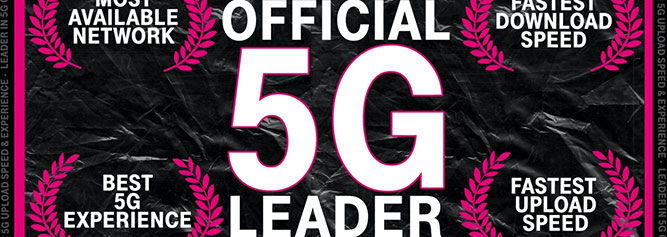T-Mobile vs Verizon vs AT&T: Extensive new 5G testing shows (once again) who's the nationwide boss
- PhoneArena.com

- Apr 27, 2023
- 3 min read

If you're thinking of jumping ship from Verizon or AT&T to T-Mobile after the latest "Un-carrier" move and all the killer product deals that have come with the upgraded and improved Go5G plans, the nation's second-largest wireless service provider (by customer numbers) is today highlighting another big reason why you should consider joining it.
This is obviously nothing new, but for reasons that are pretty easy to guess, T-Mo likes to frequently remind its existing users, potential new subscribers, direct competitors, and members of the media of its now long-standing supremacy in the 5G field.
Magenta never misses an opportunity to flaunt a new report compiled by analytics firms like Ookla, Opensignal, RootMetrics, and umlaut, especially when the data puts the "Un-carrier" ahead of its industry rivals in five out of six measured categories.
Top speeds + leading reliability = unrivaled network
The five national titles won by T-Mobile in umlaut's latest 5G network performance contest in the US predictably give the ever-improving operator the overall crown as well, with a total 5G score jumping from 770 points in January to 783 now.
The improvement notably came as the researcher vastly expanded its 5G network testing, conducting close to 30 billion measurements between October 24, 2022 and April 9, 2023 compared to "just" 11.6 billion samples gathered across the nation in the August 1, 2022 - January 15, 2023 timeframe.
These new tests included no less than 1.2 million "5G capable" users, conclusively demonstrating T-Mobile's massive advantage over Verizon and AT&T in the 5G download speed, 5G upload speed, and 5G reliability categories.
The 5G coverage and 5G stability battles, meanwhile, remain very evenly matched, as silver medalist AT&T continues to breathe down the champion's neck, threatening to overtake its position... but ultimately falling just short of doing that.
There's only one key network performance aspect where T-Mobile still doesn't reign supreme, but even from that 5G latency standpoint, Magenta does manage to defeat AT&T with relative ease, which adds to the significant distance between the overall gold and silver medalists in terms of the nationwide 5G score.
In case you're wondering exactly how T-Mo and AT&T's 783 and 700-point tallies respectively were calculated, we'll be frank with you, we don't completely understand either. But we do know 1,000 is the maximum result that can be achieved by any carrier, and after "aggregating a complete set of key performance indicators" aiming to reflect the real-life user experience on these two's 5G networks right now, those scores are fairly close to the ceiling... and getting closer.
One small win does not a great 5G network make
If you're only looking at the 5G scorecard and wondering how Verizon can possibly be ranked so far behind T-Mobile and AT&T with a clear 5G latency victory under its belt, the answer of course lies in the other five sections of umlaut's research.
Believe it or not, Big Red has somehow pulled off the incredible "feat" of finishing dead last among the top three US mobile network operators as far as 5G coverage, 5G stability, and 5G reliability are concerned.
Two of the three gaps to the first two places are pretty staggering as well, while the 5G download speed clash for avoiding last place ended undecided between Verizon and AT&T. For what it's worth, Verizon is holding on to a healthy lead over AT&T to win the first runner-up trophy for 5G upload speeds, and just like its rivals, the nation's subscriber number champion can be content seeing virtually all of its results progress over time.
At the end of the day, arguably the most important thing for the US wireless industry as a whole is to see its top players constantly stepping up their network availability, speed, and reliability games, which seems to be the case pretty much everywhere and for everyone.



















%20(850%20x%202200%20px)%20(2).avif)

Comments